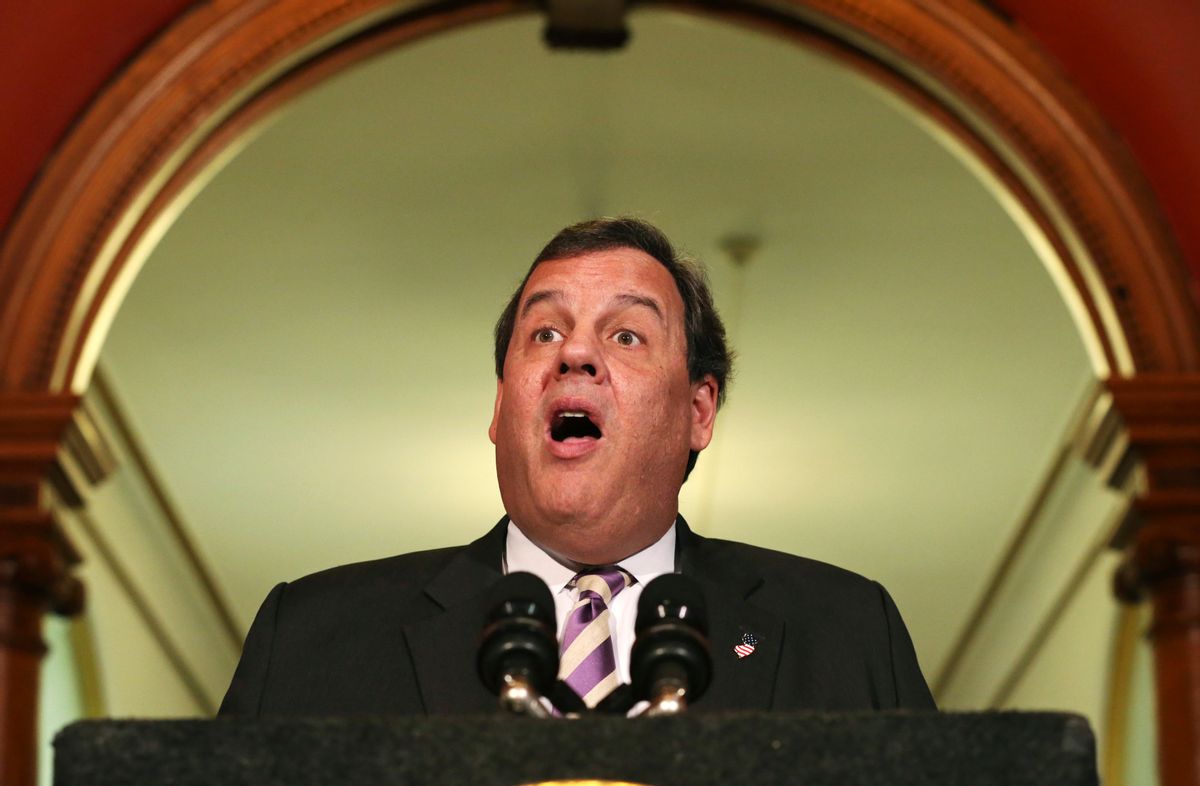Since being booted from heading up president-elect Donald Trump's transition team, Chris Christie has returned to the Governor's mansion in New Jersey amidst historically low approval ratings to veto legislation that would have allowed striking workers to collect unemployment benefits and banned solitary confinement for the most vulnerable, like people with mental illnesses, pregnant people, people with disabilities and inmates under 21 years old.
Earlier this year, a damning report found that immigrant detainees at the Essex County Correctional Facility in Newark had been forced into “excessive” and “arbitrary” solitary confinement at least 446 times.
On Monday, insisting that there is no problem with the use of the punitive correctional method, the New Jersey governor vetoed legislation that would have limited solitary confinement to 15 consecutive days, or 20 days in a two-month period.
Solitary confinement is usually defined as keeping an inmate in a cell alone or with a roommate for 22 or more hours per day.
Christie's decision comes as proponents of prison reform across the nation are challenging the practice of placing prisoners in isolation, which is known to cause severe psychological and physical harm to inmates.
The United Nations has designated solitary confinement more than 15 days torture.
“Considering the severe mental pain or suffering solitary confinement may cause, it can amount to torture or cruel, inhuman, or degrading treatment or punishment when used as a punishment, during pre-trial detention, indefinitely or for a prolonged period, for persons with mental disabilities or juveniles,” Juan E. Méndez, UN Special Rapporteur on torture, said in 2011.
The bill Christie vetoed was written after consultation with county jail wardens, unions representing corrections officers, and mental health experts. But according to a senior staff attorney of the New Jersey chapter of the American Civil Liberties Union, Alexander Shalom, "Governor Christie’s Administration was never interested in participating in conversations about how to make New Jersey jails and prisons safer and fairer.”
Christie argued that the bill restricting solitary confinement seeks to resolve a problem "that does not exist in New Jersey, because the Department of Corrections in this administration does not utilize isolated confinement, as contemplated by the bill." But as of Oct. 18, at least 1,258 state prisoners were in “restricted housing," according to the state Department of Corrections. New regulations imposed by the DOC this year curtailed such confinement to up to a year per infraction.
In a three-page veto message, Christie says his Administration has followed federal and professional standards, and segregates inmates “when medically necessary or to ensure the safety and security” of inmates and prison staff.
"(Solitary confinement) exists in New Jersey, it's abused in New Jersey, and it causes mental illness,anger and resentment when it is abused," the bill's prime sponsor, Democratic Sen. Ray Lesniak, said. "It totally makes rehabilitation efforts more difficult."
Still, Christie remained adamant that his callous veto of the bill was necessary because "this is not a bill; it is ill-informed, politically motivated press release by a prime sponsor who proves, once again, that he has no idea about law enforcement or what is being done by the very department he proposes to further regulate."
Christie even boasted that New Jersey has “cut down on the maximum amount of time people can spend in administrative segregation”—to one year per “incident.”
Sponsors of the bill can attempt to override Christie’s veto, or more likely attempt to get it passed after January 2018, when a new governor will be in office.

Shares